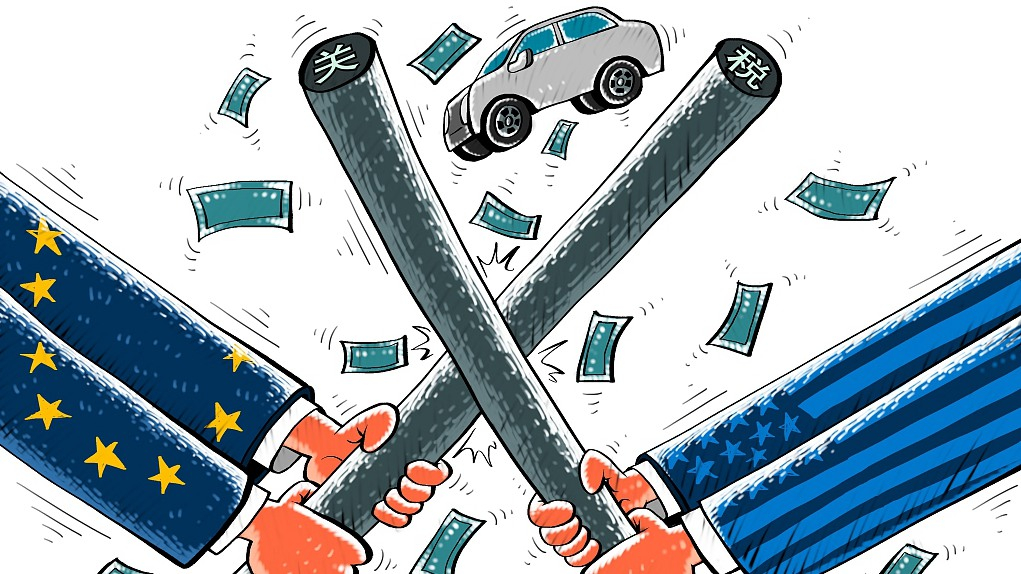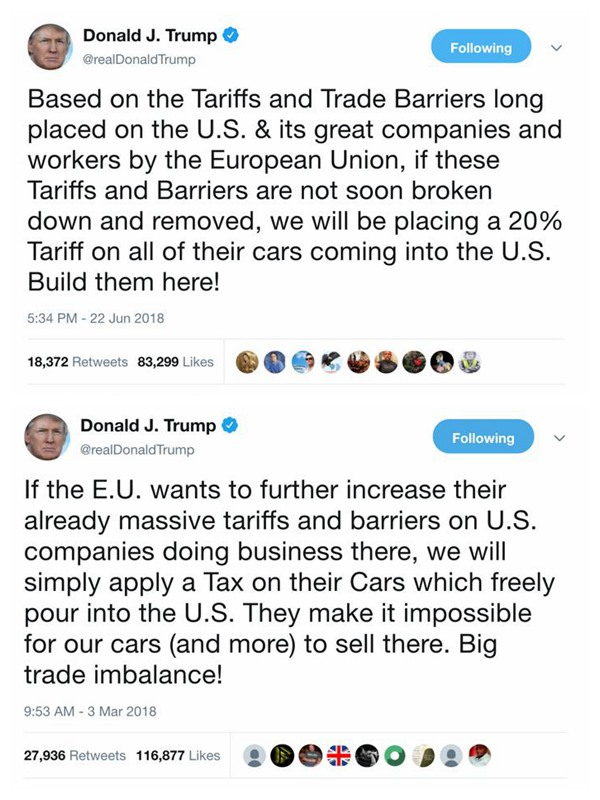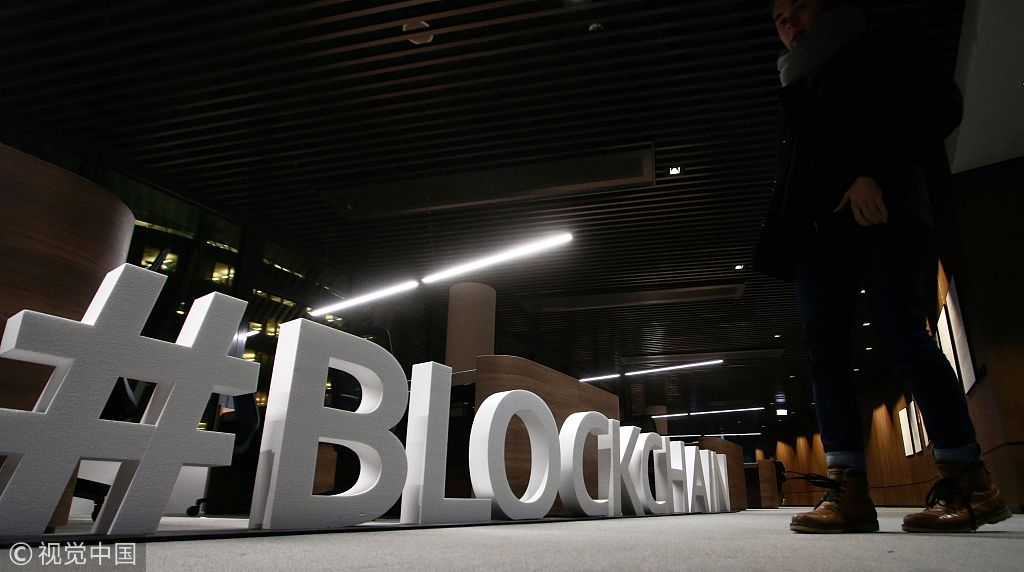
Opinion
21:39, 18-Feb-2019
Opinion: Trump’s political calculations behind the auto tariffs
Noah Wang

Editor's note: Noah Wang is co-founder and chief marketing officer of TOP Network, a Silicon Valley-based tech firm developing a business-friendly public blockchain and the world's first blockchain-based cloud communication network. The article reflects the author's views, and not necessarily those of CGTN.
Ever since the Trump administration started considering sweeping tariffs on foreign-made cars and car parts out of national security concern, the U.S. auto industry has never stopped voicing its oppositions to the idea.
The Commerce Department submitted a dossier to President Trump by Feb 17 on whether national security concerns could justify a levy of up to 25 percent on auto imports, including those from America's allies. A few days before the deadline, domestic trade groups' dissents were all over the press, along with newly released research reports demonstrating that such tariffs would push up car prices and shrink auto-related jobs.
It seems logically absurd for the government to insist on a protective policy that the would-be beneficiary bitterly resents. However, the proposed auto tariff is more a bargaining chip than anything else. In Trump's multiple tweets and media interviews about his car levy proposal, it is the economies refusing to reduce their trade barriers on U.S. goods, rather than actual national security threats, that have long been under fire. He believed that without tariffs, trading partners like the European Union would not meet with the U.S. to negotiate new trade deals, Trump told reporters from the Wall Street Journal last year.

Trump's tweets on March 3 and June 22, 2018
Trump's tweets on March 3 and June 22, 2018
In August, the Trump administration pushed back the schedule for auto levies, thanks to the eased tension as the U.S. started to renegotiate trade deals with the EU and other countries. This year, Trump may soon resort to auto tariff threats again, since he is unlikely to find a stronger weapon to coerce the EU into agreeing to bring the agricultural issues to the trade talk and notch better deals for U.S. farmers, a demand firmly rejected in previous discussions.
The voter is another big motivator behind Trump's auto tariff strategy. Tax penalties on foreign products are crucial to Trump's blueprint for bringing manufacturing jobs back to the U.S., a grand promise that won him votes from Midwestern states. Politico reported in June that to woo voters, Trump initially attempted to move forward with plans to tax foreign vehicles before mid-term elections.
But it takes time for those tariffs to translate into significant employment boons. CNN reported last week that although the steel and aluminum tariffs enacted last year helped bring a few halted mills back to operation, jobs added were so few that they couldn't compare with jobs lost. As the clock is ticking for the 2020 presidential campaign, Trump would likely feel obliged to back up his tariffs-boost-jobs message with an aggressive move in the auto sector, which contributes more manufacturing jobs in the country than any other industry.
Auto tariffs might give Trump political leverage in trade talks and elections, but they would deal a heavy blow to the U.S. auto industry and consumers. Broad-based taxes on imported auto parts, for example, would cripple the international supply chain and force American car manufacturers to source vehicle components in the country, driving up prices of U.S.-made auto parts. Consequently, prices for new cars, used cars, car rental as well as repair and maintenance would rise. Price hikes across the market would weaken consumer demand and shrink sales and profits, which would cause, at least in the short term, auto companies to sack workers.
Tariff-related risks are beyond automakers' control, but companies could mitigate potential damages by tapping into cutting-edge technologies to optimize workflow and supply chain to reduce operating costs.
One typical example is blockchain. The technology underpins a public digital ledger that allows different transacting entities to update information of a transaction in real time without human mediation. The ledger is rendered tamper-proof by advanced algorithms, so records on the blockchain are guaranteed trustworthy, eliminating the need to depend on intermediaries to verify information and establish trusts among different parties.

Blockchain center, Vilnius, Lithuania /VCG Photo
Blockchain center, Vilnius, Lithuania /VCG Photo
Potential blockchain use cases are abundant in the auto industry. Auto manufacturers could adopt the ledger to safely and accurately store and verify information of suppliers and dealers, reducing the loss caused by fraud or data inconsistency. A Deloitte program uses blockchain to track vehicle component details, allowing companies to pinpoint specific flawed parts and avoid expensive large-scale recalls. Blockchain supports secure, middlemen-free financial transactions, which enables companies to provide users with car-related monetary solutions such as car leasing and financing without hiring costly intermediaries.
Trump's political agenda-driven auto tariffs might cause the U.S. auto sector to falter in the short term. Technology, however, could bring brand new opportunities for the industry and help mitigate Trump-related headwind.
(If you want to contribute and have specific expertise, please contact us at opinions@cgtn.com.)

SITEMAP
Copyright © 2018 CGTN. Beijing ICP prepared NO.16065310-3
Copyright © 2018 CGTN. Beijing ICP prepared NO.16065310-3